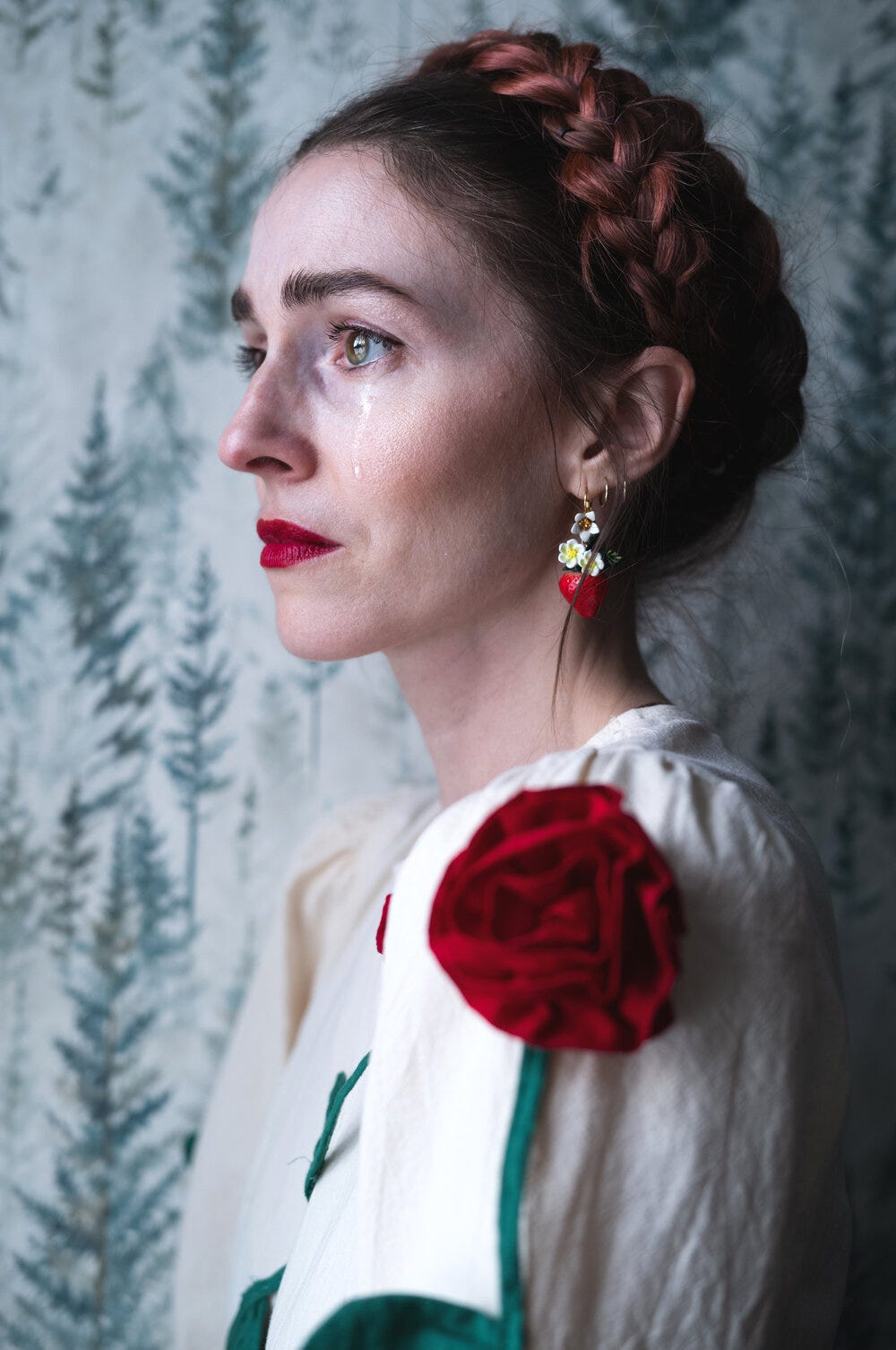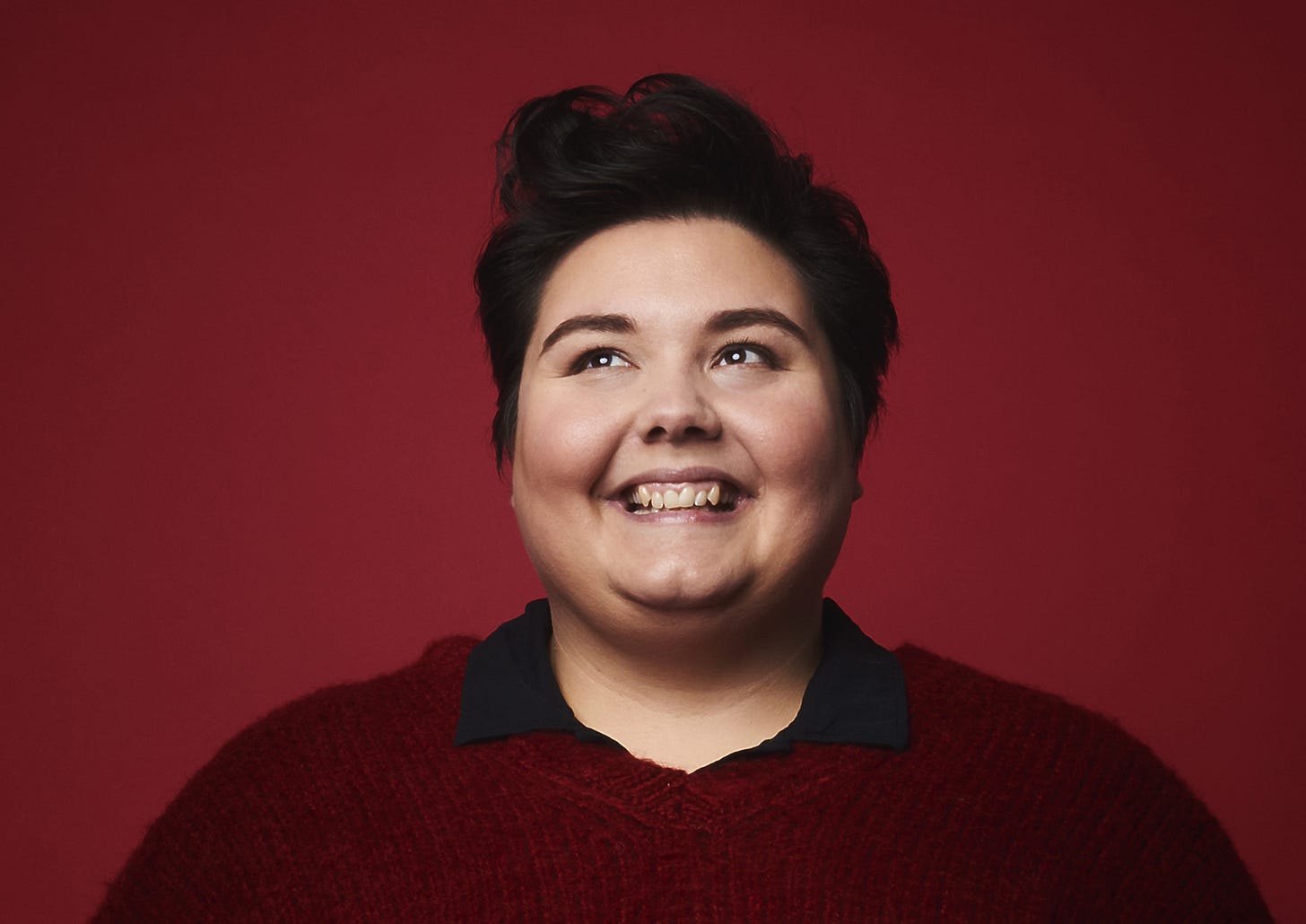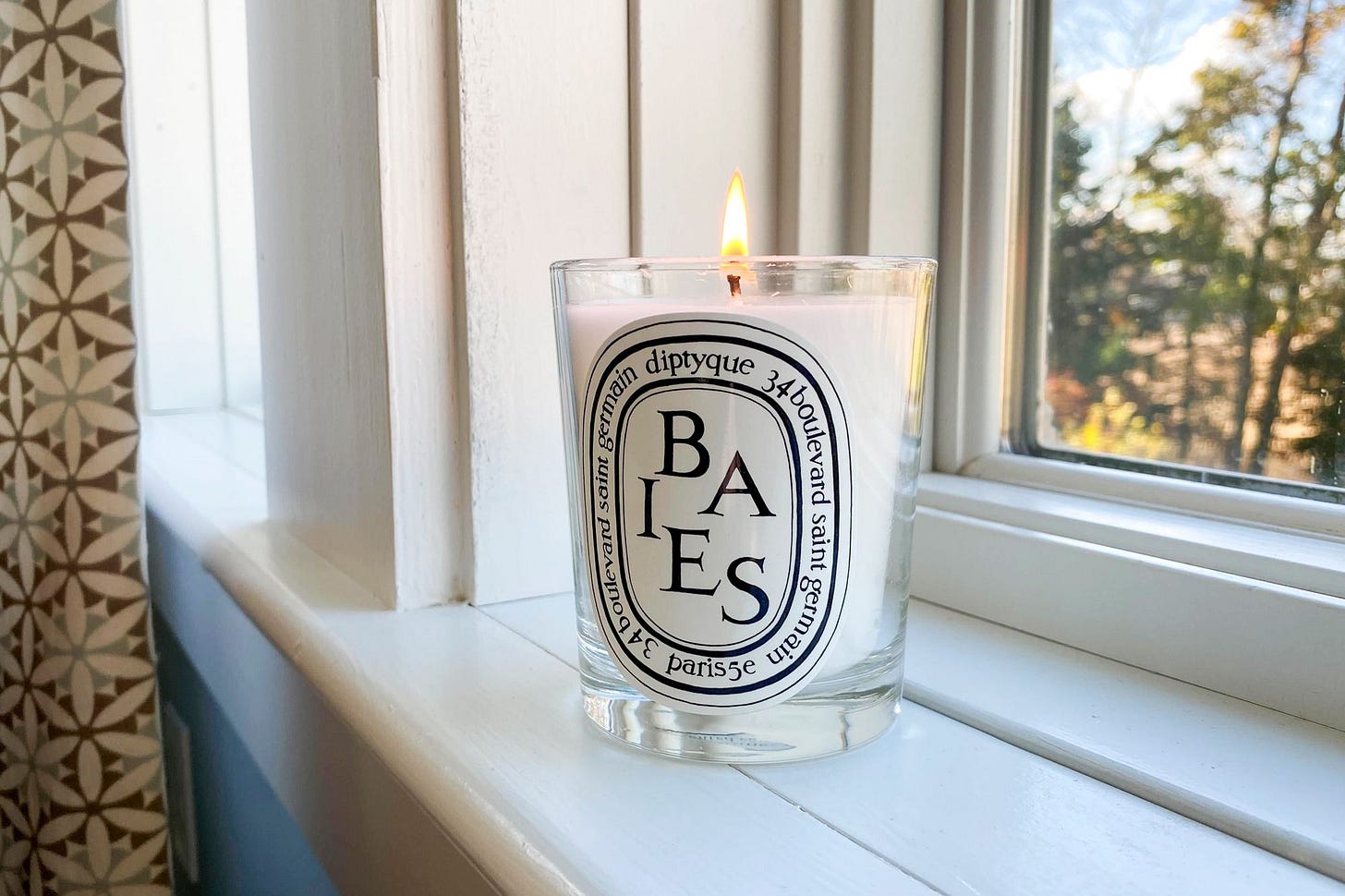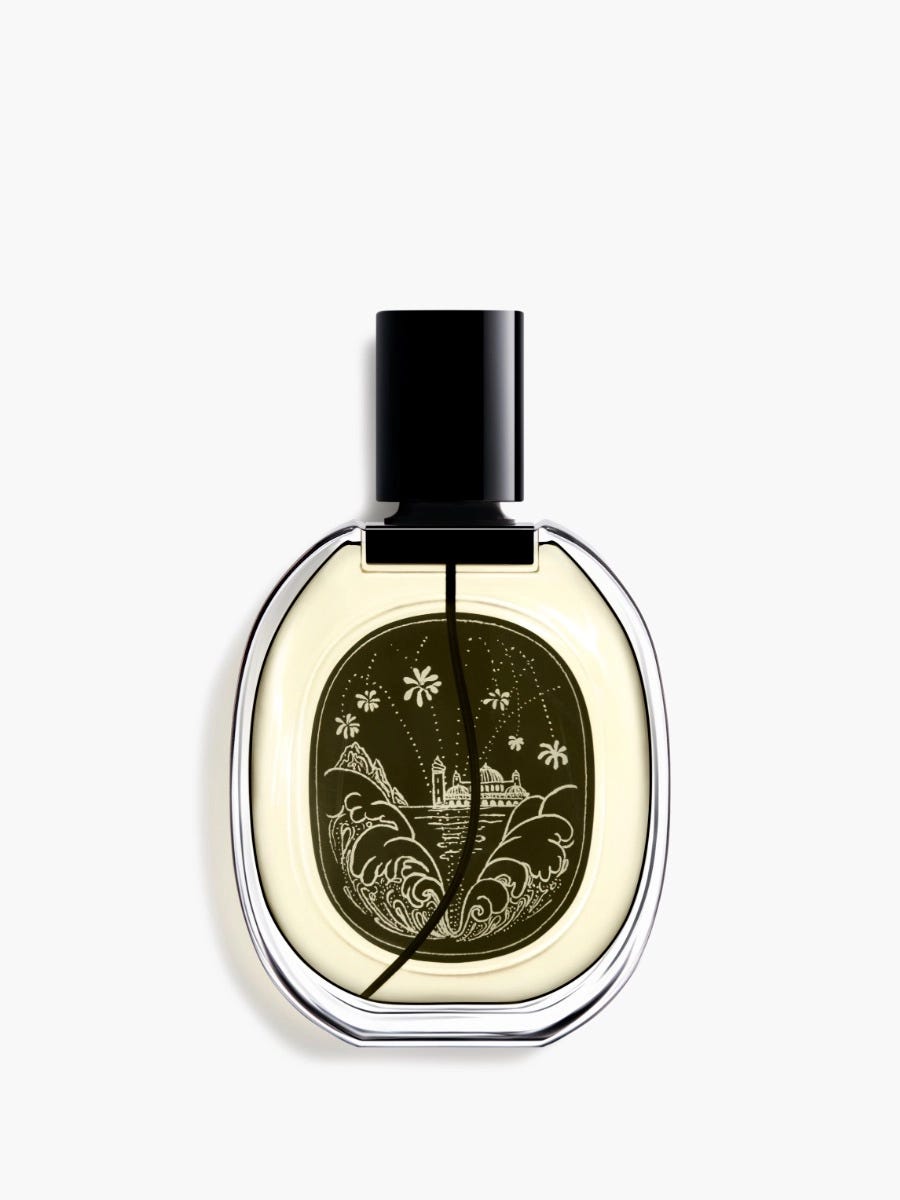Sad

At one point in Anna Marie Tendler’s memoir, Men Have Called Her Crazy (MHCHC), she describes another bout of professional ennui overcoming her, asking herself if selling her expensive handmade Victorian lampshades to aesthetes is really what she wants to be doing with her life. I honed in on this word because ‘aesthete’ is the word I would use to describe Tendler herself. She is uniquely stylish, artistically talented and in possession of an incredible eye for beauty. This has gained her a cult following over the years that was certainly helped by, and outlived, her marriage to famous comedian John Mulaney. She is also intelligent, weird, esoteric and funny. I would consider myself one of her devoted followers, having discovered her makeup blog on tumblr in the aughties and never looked back. In fact even typing John Mulaney’s name makes me want to bust out the knife emoji. Tendler’s fans, like Fiona Apple fans, tend to feel a deep personal connection to her. Tender is also, like Apple, something of a recluse, living alone in a giant 19th century stone house in the woods of Connecticut, which she has decorated to her exact eccentric tastes. Mulaney was supposed to join her there from their home in NYC but then, during the pandemic, “something happened” as they say of all history, and she spent the pandemic isolated in what was intended to be their mutual marital home, like something out of a dark fairy tale.
This “something happened” was what many people believed MHCHC would address. As Mulaney did not leave the marriage so much as publicly torch it. Much of his nice-guy comedy over the years loving included Tendler and her quirks, their dog Petunia, their mutual desire to never have children, and people idolised their childfree coupledom. Then Mulaney, who had been loudly sober, checked into rehab in December of 2020, announced he was leaving his marriage in May of 2021 (Tendler released an announcement of her own saying the decision was not mutual) and had a baby with model Olivia Munn in November of 2021. During this time Tendler began working on and releasing what I believe is her masterwork, a series of self-portraits and photography of her home titled Rooms in the First House, described as chronicling “the often non-linear experiences of loss, anger, and powerlessness, as well as a reclamation of identity.”

In January of 2021 Tendler checked herself into a psychiatric hospital for suicidal ideation, self harm and an eating disorder. MHCHC addresses this period of time in Tendler’s life and reflects back on her dysfunctional family, origin of her teenage cutting and mental health issues, and the source of her greatest misery— men. Tendler skirts the edges of, but does not fully embrace the label of love and sex addiction here, discussing how her desire to be chosen by a man, seen as special, drove her into unsafe, ethically dubious and profoundly unfulfilling romantic relationships where she felt used, gaslit and discarded over and over again. She also discusses at length her profound anger at men, their refusal to engage seriously in their own complicity in patriarchal structures, the way they take advantage of their power without ever questioning who it might hurt, always foregrounding their own blamelessness. For me a particularly powerful moment comes when Tendler is at an airport with a boyfriend who has been telling her for months she’s exaggerating the hatred she feels radiating at her from a woman in her boyfriend’s life. Accidentally seeing an email to her boyfriend from this woman, in which Tendler is trashed, Tendler explodes at the boyfriend, shrieking “you are a FUCKING LIAR!” at him in the middle of a crowded terminal.
here is the thing about men lying to women while telling them they are crazy and over reacting. The lying, the underplaying on their side, makes us doubt our intuition and intelligence, so eventually when suspicions are confirmed, when we find out we have been correct all along, we do go batshit fucking crazy.
Men Have Called Her Crazy, 177
What is missing in MHCHC is any mention of her husband and partner of ten years, John Mulaney. She vaguely references getting divorced, that her pattern in relationships with all men have been largely the same—basing her self worth on their love and perception of her, being so disgusted by men at the outset of her hospitalisation she can’t even look at them anymore (this is one month after Mulaney enters rehab), going to Al-Anon meetings pre-hospitalisation, but that is it. She doesn’t even write his name down. Discussing this with a friend, she thought this was a baller move. That Mulaney must’ve blanched when he heard she was writing this book, frantically dug through it for what she revealed about him, but in the end he’s not even worth the ink to dispatch a single paragraph on. In interviews Tendler has said she didn’t want to write a book based on the “one thing” everyone knows about her and that’s about as far as she’ll discuss it. And. Fair. It might be kind of confusing for any readers who don’t already know her story? But, you go girl and all that. However…she clearly she wanted to make a strong statement, about men, at the end of the brutal and public dissolution of her much adored marriage to someone everyone thought was a real sweetie pie. Something doesn’t track for me here. There’s a hole in the heart of this memoir.
We can’t know all the reasons Tendler won’t discuss Mulaney, she may be subject to an NDA, and is trying to protect her finances and stay out of court. Who knows. I agreed with a lot of what Fran Hopfner said in her review for Vulture about MHCHC, that there is not enough engagement in a deeper analysis of what makes Tendler tick as an artist, as a person in recovery, as someone who has relied on women to get through a life where she felt wrecked by men— there’s pockets of this, yes, but there’s much more focus on her anger at specific men she’s dated than a more complete picture of how she herself fits into a patriarchal world. The book often felt to me like she was throwing daggers around a target she wasn’t supposed to hit— Mulaney himself. The memoir doesn’t journey deep enough into herself to negate his shadow looming large over what she does choose to share.
One of the most interesting things to me about MHCHC was Tendler’s openness about how aimless she’s felt in her life, floating from man to man and job to job, how she largely has perceived herself as a failure who survives off other people’s income. The social media impression she’s left over the years is one of a polymath who successfully pursues whatever her artistic interest is at the time. The reality is that she wasn’t able to make it as a dancer, which deeply effected her, failed out of beauty school, dropped out of a number of university programs, never got her cosmology license, passionlessly tried to work as a make-up artist and hair stylist, found some success as a makeup blogger because her best friend worked at tumblr, did not complete her graduate degree until her late thirties and did so under great duress, often needing extensions and breaks. This level of honesty, especially about financial support allowing her to pursue chosen degree programs and artistic callings, as well as about a rudderless sense of purpose marred by mental health problems, is hard to come by and fascinating to read about. I loved that she let herself be vulnerable in this way, to be seen as someone who tries and fails and doubts and falls. I loved her popping the balloon of her social media self, I thought it was brave, fascinating and deeply relatable. I wished it had been a larger focus of the book. I hope Tendler will keep writing and pushing herself to open up once she clears whatever legal or psychic hurdle she is struggling with in this memoir.

Famous
I do not have a major critique of comedian Sofie Hagen’s latest memoir, Will I Ever Have Sex Again? or even anything that deep to say about it except that I loved it and I want as many people to read it as possible. It was such an intimate, funny and humane book. In it Hagen decides to explore why she hasn’t had sex in almost a decade and investigates it with total openness and sincerity. Broken down into various topics such as gender, sexual identity, trauma (Hagen herself is non-binary, bi-sexual and has CPTSD), I was impressed by Hagen’s level of disclosure and vulnerability, which anchored the research on sexuality that comprises much of the book. She manages to be totally real about what she’s experienced, in a way that is so honest and self accepting it seems to preemptively negate any shame that might arise from it.
Hagen also includes some of the over 1,800 responses she received from followers of her newsletter when, considering if there would be an audience for a book about not having sex, she asked people for their stories about not having sex. Many of these stories are very moving. This book is carefully constructed to include stories about grooming, abuse and trauma but without graphic or unnecessary details—so proceed with caution, but know this is a book which is considerate of its audience. Hagen’s own story about an abusive long term relationship with a famous comedian (what is up with these guys.) is given an interesting juxtaposition with her career at the time, where she was a popular, highly knowledgable fat activist who was helping people to accept themselves, while simultaneously harming herself in private via this relationship. It spoke to how many masks we can wear, even when no one is looking, even when our intentions are good, in service of our internalised messages about our romantic and sexual selves.
Will I Ever Have Sex Again? had me asking myself questions about what it means to have sex in a female body and what aspects of both my personal life and my socialisation I am bringing with me into the bedroom. It made me consider new aspects of what it means to be a sexual person and how multifaceted our instincts for both self preservation and connection are.
Dipt-stick
Diptyque is a French perfumery who has been the hot ticket social media status symbol candle for quite awhile now, in particular the scent “Baies” (berries). On resale sites you can buy empty Diptyque candle jars (and empty Diptyque perfume, lotion containers, retail sales bags) to presumably fill with a random white candle and have in the background of your Tik Tok videos or whatever you want people to see. They are incredibly expensive— their smallest candle, 2.5 ounce, with a burn time of 20h, costs £35 ($45 USD), their largest candle, a 5-wick the size of a mini bathroom bin, costs £285 (burn time 120h, $365 USD). Their car defusers cost £85.
I’ve been curious about them, tho my general take is any regular sized scented candle (50h burn time) that costs more than about £35 you’re just paying for packaging and name. I think a high quality scented candle can be had for between £20-35 as a rule of thumb. There is no denying that the Diptyque packaging is exquisite and easy to covet—they are beautifully designed, branded and crafted. In particular their signature oval perfume bottles and anything special edition they do. They are also an established posh perfumery who has been in operation in Paris since the mid-1960s, the brainchild of a French architect, an interior designer and funded by a British aristocrat. Diptyque claims to have been the ones to popularise the scented candle as an object of decor rather than just a purely functional object. I haven’t done enough research to know how true this is, but if I do I’ll get back to you on it.
Through some eBay situation I don’t need to know the details of, I found an unopened set of three small Diptyque candles in their three most popular scents (Baies, Figuier and Rose) for £19— retail £100. Here’s my take— the packaging on the small (and also classic) sized candles is a clear jar with a white candle, always pretty but not special?, and a white logo sticker. Y’know. It’s functional at best. The throw (that’s candle nerd for how far the scent carries when lit) is very good, powerful for a little candle. It filled my living room easily and the scents are lovely. Are they £35 for a 20h candle lovely? In my opinion, no. I can absolutely see spending big money on a bottle of their perfume, which is going to last. But £35 for, max, maybe three evenings of candle burning? Not worth it and there’s so many other great places making equally incredible scented candles in lovely packaging for better value. If you’re in the UK, I’d recommend checking out Norfolk Natural Living who do a two wick 50h candle for £29, lots of beautiful signature scents. In the US, I am a big fan of Roen, who do incredible scents, and will run you around $30 for a 50h candle. I’m a sucker for fanciness as much as the next chap but take a pause on this one (or scour eBay!).
I normally don’t do anything too current events oriented on here but I have been following the controversy surrounding Olympic boxer Imane Khelif with great interest because it is such an incredible example of the power of disinformation and bigotry (please fuck off forever JK Rowling 🙏🏻 for the good of all humanity). I wanted to share a couple of links about it for anyone else who has been following it or is curious as to what happened. First, this fascinating essay— Gender was Made for White People. And then from a link in that essay I watched a powerful video which discusses why cis women should be pretty concerned about what happened to Imane Khelif as The Transphobes are Coming for Us All
This is the best essay I have read on Substack recently: My Breast Reduction, Myself









I forgot to link it in the text but if you'd like to support Sad & Famous, you can purchase either of the books discussed through my affiliate Bookshop: https://uk.bookshop.org/shop/sadandfamous